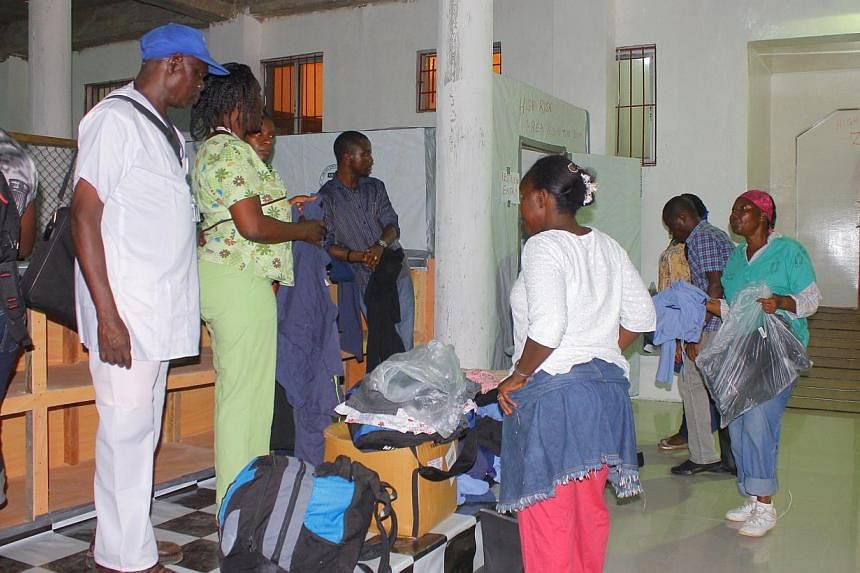It was exactly 10 years ago when I went on my first mission with Médecins Sans Frontières (MSF) to Liberia, specifically Monrovia. It was a year after the end of the second Liberian civil war, which the locals had termed WW III. Fighting was still going on in the midst of the United Nations' disarmament and demobilisation programme.
At the time, MSF was one of a handful of actors providing primary and secondary health care, filling the gap left by a dysfunctional public health system, which had huge deficits of facilities, resources, equipment and manpower to provide the necessary care to their people.
It was a country decimated by civil war, trying to get its feet back on the ground.
Whatever gains were made in this past decade are now on the brink of collapse as a result of this unprecedented Ebola epidemic. Another conflict has come to Liberia; a life and death struggle against a virus.
Since the beginning of the Ebola outbreak in March, MSF has been ringing the alarm bells but response from the international community has been slow.
Seven months later, the situation is catastrophic with thousands dying. Ebola cases continue to surge, isolation centres are overwhelmed my colleagues on the ground are exhausted. Today in Monrovia, we have to resort to turning away patients who urgently need care because there are no beds or space available.
The public health infrastructure is collapsing with health workers on the front line becoming infected and dying in shocking numbers. Others have fled in fear, leaving people without care for even the most common illnesses such as malaria or common respiratory tract infections. Pregnant women have nowhere to go to have a safe delivery. Entire health systems have crumbled.
Fear is paralysing everything and food supplies are dwindling as trade and the economy grind to a standstill.
In the neighbouring country of Sierra Leone, the situation is far from under control. We see no downward trend in the admissions of patients in our centres. Cases are starting to rise in the capital, Freetown, and without a massive and immediate response, the risks for another densely populated city are considerable.
While the health system of Guinea in general has not been as badly affected as that in Liberia, the situation remains tenuous. The government has an ambitious plan to fight the epidemic but would need significant support on logistical and HR resources to stop the virus.
Every day of inaction means more deaths and the slow collapse of societies.
In a speech given by Dr. Joanne Liu, MSF International President, at the UN Special Briefing in New York on Sept 2, we appealed to States with biological-disaster response capacities to aid in the Ebola response. We called for the scaling up isolation centres; deploying mobile laboratories to improve diagnostic capabilities; establishing dedicated air bridges to move personnel and equipment to and within West Africa; and building a regional network of field hospitals to treat suspected or infected medical personnel.
While we welcome the recent announcement by US president Barack Obama to deploy 3000 troops and other assets to Liberia, gaps remain for the region.
ASEAN can help bridge some of the gaps. Since the 2003 Sars pandemic, member states have worked together to coordinate preparedness and response to pandemic threats. The knowledge gained by ASEAN in the last 10 years would be an important asset and support to West African countries that are affected by the Ebola outbreak today.
The window of opportunity to contain this outbreak is closing. We need more countries to stand up. This robust response must be coordinated, organised and executed under a clear chain of command led by the United Nations.
This is a transnational crisis, with health, social, economic and security implications for every continent. And Southeast Asia can make a difference to the outcome.
Dr. Maria Guevara is MSF's Regional Humanitarian Representative in Asia based in Hong Kong.

